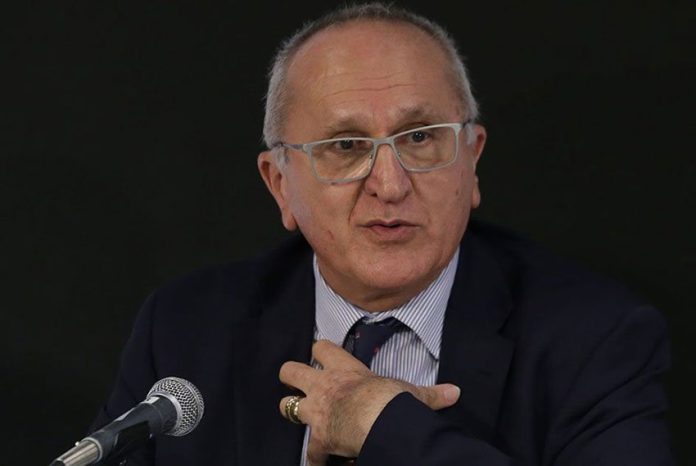Mexico could impose like-for-like tariffs on United States steel and aluminum in the coming weeks, a new government official has indicated.
Jesús Seade, foreign affairs undersecretary for North America, advocated the move, charging that the previous government’s response to the United States’ metal tariffs imposed on June 1 was not strong enough to pressure U.S. President Donald Trump to remove them.
In an interview with the newspaper Milenio, he also said that Mexico should have resisted signing the new North American free trade pact, now known as the United States-Mexico-Canada Agreement (USMCA), before the duties disappear.
“Eliminating [the tariffs] is urgent, in reality it’s very regrettable that we signed [the new trade pact] without them having been removed. We should have pushed harder. Now that we have entered [government] we have to push very hard on this matter and I hope that will happen in the first weeks of the new regime . . .” Seade said.
The new official, who represented then president-elect López Obrador in the tail end of the trade negotiations between Mexico, the United States and Canada, added that Mexico’s response to the 25% duties on steel and 10% on aluminum should be “something symmetrical,” adding “like-for-like measures is what I believe we must enforce immediately.”
Seade made a similar comment to the news agency EFE last week while in Buenos Aires, where former president Enrique Peña Nieto, Trump and Canadian Prime Minister Justin Trudeau signed the new trade deal on the sidelines of the G20 summit.
“The first thing that Mexico has to do is smile, extend a hand to the United States and say: ‘we have to work together, we’re friends’ and change the [current] tariffs to like-for-like tariffs that hit the [U.S. steel] sector that benefits,” he said.
Mexico responded swiftly to the United States’ announcement that it would impose metal tariffs on its southern neighbor, imposing reciprocal duties on products such as pork, apples, potatoes, cheese, bourbon and some steel products.
But Seade told Milenio that the previous administration should have been more specific in its response.
“I think that by imposing tariffs scattered over a range of products the intention was to hit President Trump voters but I don’t think that’s the [right] way,” he said.
“United States producers weren’t hit sufficiently hard to pick up a pen and write: President Trump, why are you doing this to us? We’re the ones who are paying, the tomato growers [are paying] for what the steelmakers did. Well, they’re not going to pick up a pen because the blow isn’t so hard, [the tariffs] are scattered among a lot of products,” Seade added.
The undersecretary said it was possible that there could be friction on trade between the new López Obrador government and the Trump administration but reiterated that like-for-like tariffs are “something we have to have – a more robust position so that this [the U.S. metal tariffs situation] is resolved as soon as possible.”
Seade said last week he hoped that a deal could be reached so that the tariffs are removed by the end of the year, but United States Trade Representative Robert Lighthizer told a press conference in Buenos Aires that “it’s difficult to set a fixed deadline” for the issue to be resolved.
“What the president has asked me is to find a satisfactory solution for the Canadians and the Mexicans . . . but also for American industry and consumers,” he said.
Source: Milenio (sp), El Economista (sp)
